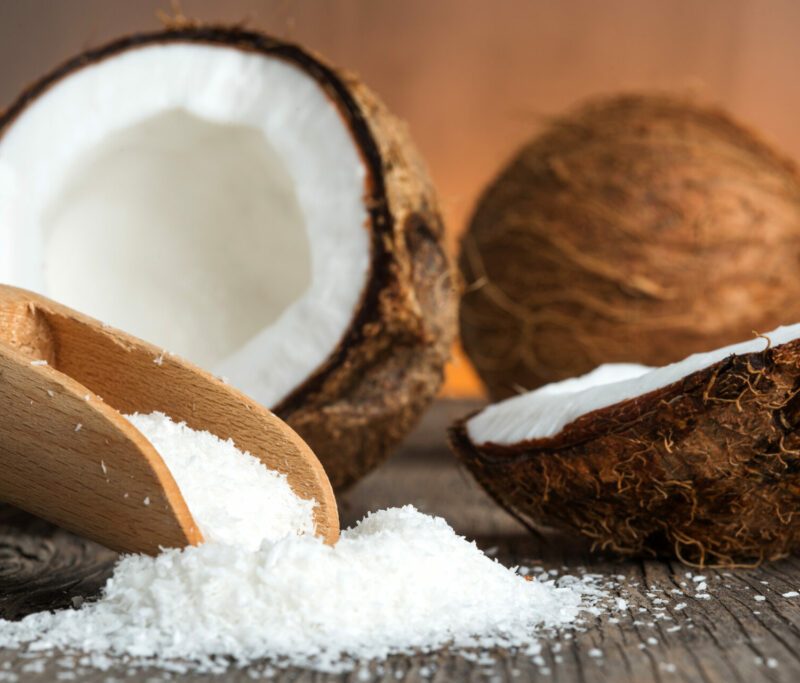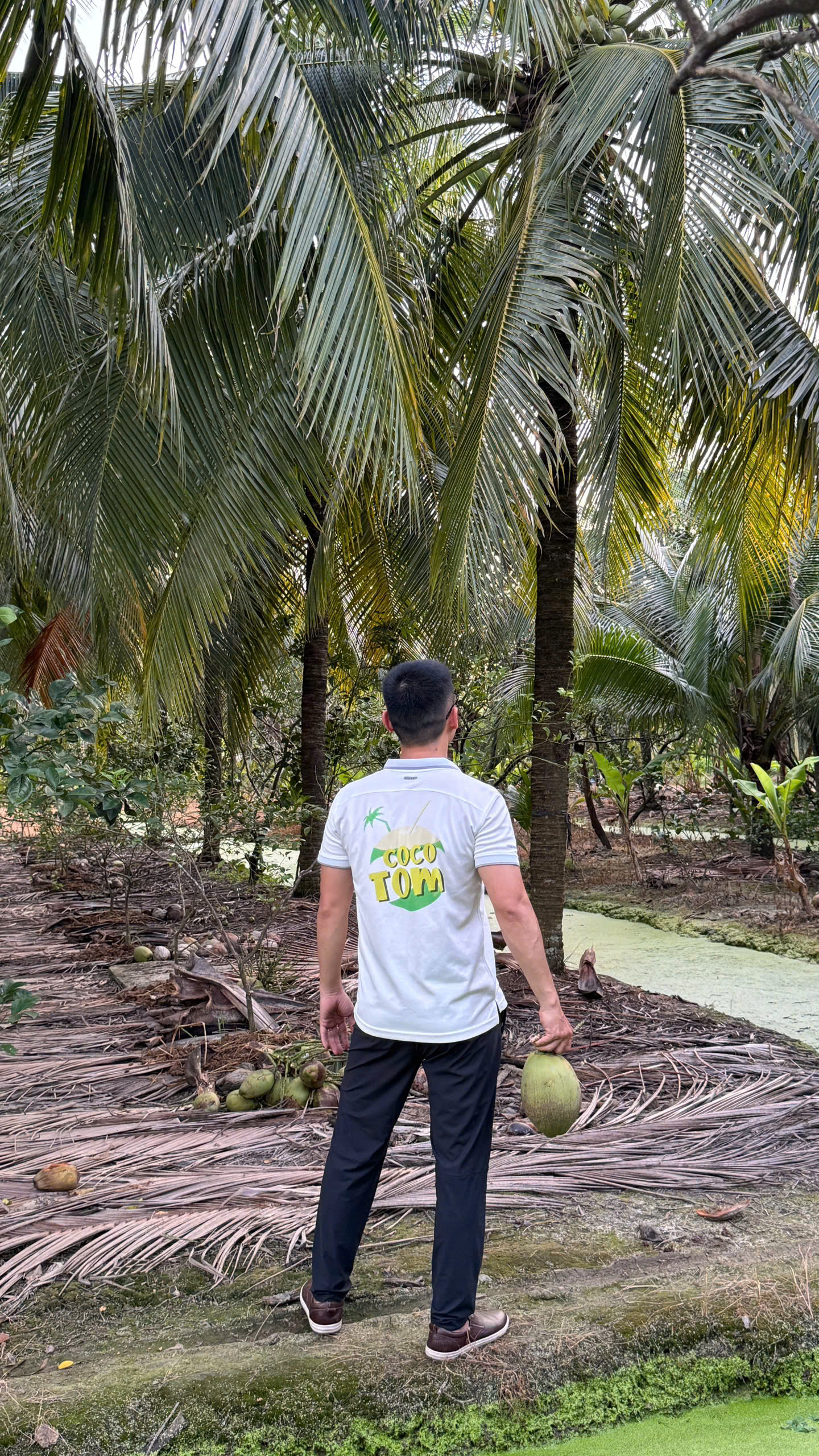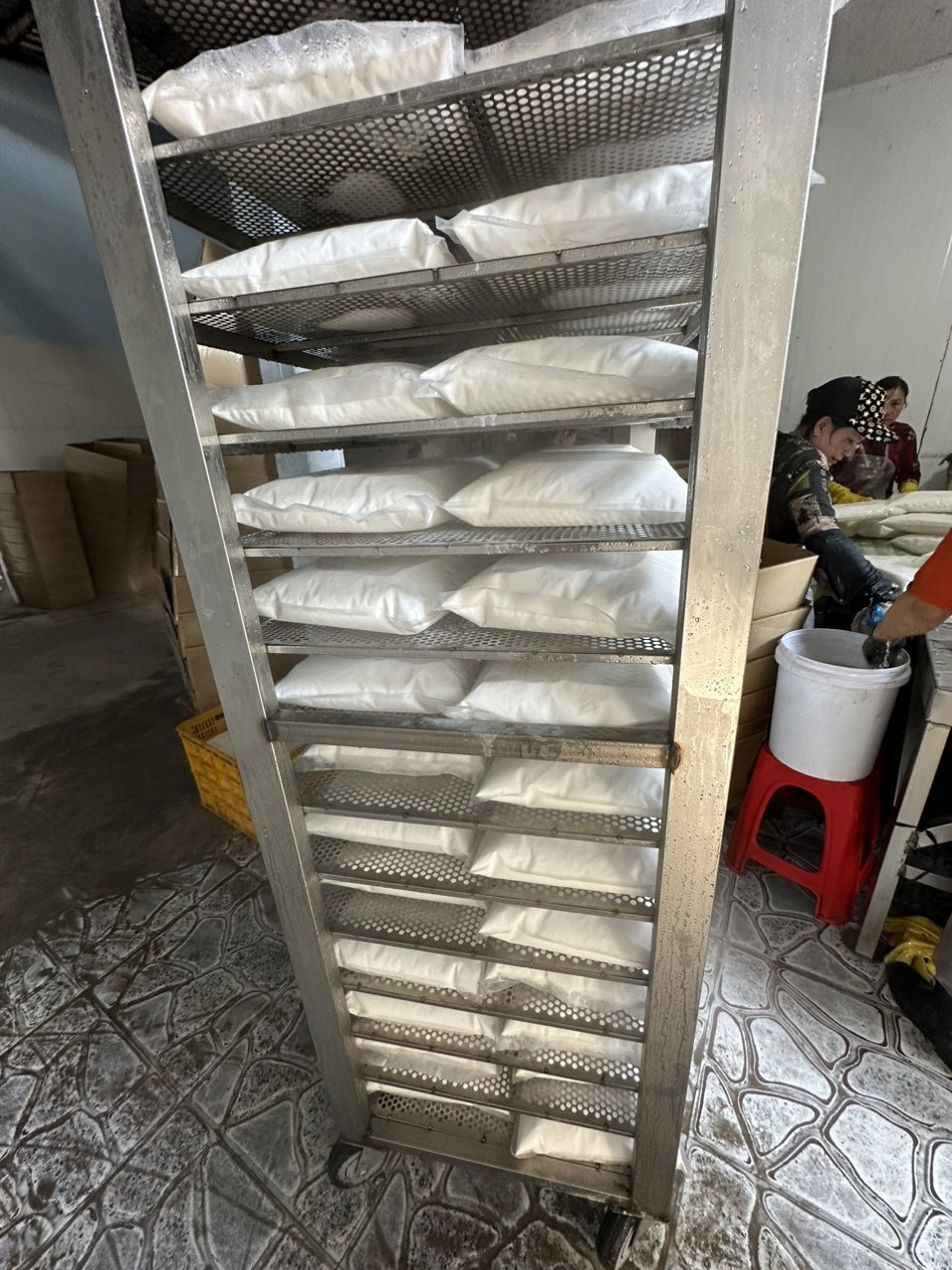In the ever-growing global demand for coconut-based ingredients, desiccated coconut remains one of the most versatile and sought-after products. From baking and confectionery to dairy alternatives and snack foods, its applications span a wide range of industries. While many countries contribute to the global supply chain, Vietnam has steadily emerged as a dominant player. In this article, we explore what gives Vietnam its competitive edge in the international desiccated coconut market, and why buyers around the world are increasingly turning to Vietnamese suppliers.

1. Abundant Natural Resources and Ideal Growing Conditions
Vietnam’s southern provinces—especially Ben Tre, Tra Vinh, and Tien Giang—offer ideal tropical conditions for coconut cultivation. With rich alluvial soil, high humidity, and consistent rainfall, coconuts grown in Vietnam yield high oil content and a naturally sweet flavor, which are both highly valued in desiccated coconut production.
Vietnam ranks among the top six coconut-producing countries in the world. The abundance of raw material ensures stable supply and scalability, even for high-volume buyers. This natural advantage allows Vietnam to offer competitive prices while maintaining high quality.

2. Advanced Processing Facilities and Technology
Over the last decade, Vietnam has invested heavily in modernizing its agricultural processing sector. Many factories now operate under ISO 22000, HACCP, BRC, and FSSC 22000 standards. These certified facilities use automated systems for hygienic processing, drying, and packing of desiccated coconut.
The result? Consistency in moisture content, particle size, and flavor. This level of quality control makes Vietnamese desiccated coconut ideal for global food brands, manufacturers, and distributors that require strict compliance with safety and quality standards.
3. Skilled Labor and Strong Agricultural Know-How
Coconut farming and processing have been part of Vietnam’s cultural and agricultural identity for generations. Farmers and processors are skilled in selecting, harvesting, and handling coconuts to maximize yield and minimize waste. This deep-rooted knowledge contributes to a better raw material foundation and more efficient production processes.
Moreover, training programs supported by government and NGOs have helped elevate local expertise, particularly in sustainable farming, organic certification, and traceability—critical factors for global buyers.
4. Wide Product Variety and Customization
Vietnamese desiccated coconut is available in multiple formats, including:
- Fine grade
- Medium grade
- High fat or low fat
- Toasted or untoasted
- Organic or conventional
This variety makes it easier for buyers to find products that meet specific formulation needs. Whether you are a bakery brand looking for fine-grade high-fat desiccated coconut or a cereal manufacturer sourcing a toasted, low-fat version, Vietnam offers tailored solutions.
Customization also extends to packaging (bulk or retail-ready), private labeling, and even moisture/oil content adjustments based on end-use requirements.

5. Competitive Pricing with High Value
One of the most compelling reasons global buyers source desiccated coconut from Vietnam is pricing. While offering quality that rivals top producers like the Philippines or Indonesia, Vietnam maintains cost advantages due to:
- Lower labor costs
- Proximity to raw materials
- Efficient logistics infrastructure
The cost-to-quality ratio positions Vietnam as a high-value supplier in the desiccated coconut segment, especially attractive for B2B buyers looking to optimize margins without compromising product standards.
6. Sustainability and Traceability
With global consumers and retailers demanding greater transparency, Vietnamese suppliers have taken meaningful steps toward sustainability. Many now offer:
- Organic certified desiccated coconut
- Non-GMO and allergen-free options
- Eco-friendly processing practices (e.g. waste reuse, solar energy)
- Full traceability from farm to export
These attributes appeal to environmentally and socially conscious buyers, particularly in Europe and North America.
7. Strategic Location and Export Infrastructure
Vietnam’s location in Southeast Asia provides a logistical advantage. With multiple deep-water ports and access to major shipping routes, desiccated coconut exports can reach Asia, Europe, the Middle East, and the Americas with relatively short lead times.
Vietnam also benefits from a range of Free Trade Agreements (FTAs), which reduce tariffs and simplify customs procedures with key markets, giving buyers more predictable import costs.
8. Growing Reputation and International Demand
Vietnamese desiccated coconut has steadily gained recognition at trade shows, through export associations, and via participation in global food expos like Anuga, SIAL, and Gulfood. This growing visibility, combined with positive customer experiences, has led to increased demand and long-term partnerships with international buyers.
Countries like the U.S., Germany, China, South Korea, and the UAE are now significant importers of Vietnamese desiccated coconut. This trend reflects not only Vietnam’s competitive pricing but also its rising status as a trusted supplier.
9. Government Support and Export Policies
Vietnam’s government has actively supported the coconut industry with incentives, technical training, and investment in agricultural R&D. Export policies have been streamlined, and key coconut-producing regions receive funding for infrastructure and quality improvement projects.
Supportive regulations help ensure that desiccated coconut manufacturers can scale production, meet international certifications, and deliver consistent quality to overseas partners.
10. Success Stories from Leading Vietnamese Exporters
Companies like Vietnam International Agriculture (VIA) are helping drive the industry forward. VIA, for example, offers a wide range of desiccated coconut products, all produced in certified facilities and exported to over 20 countries. The company’s commitment to quality, customization, and customer service reflects broader industry trends that have shaped Vietnam’s competitive edge.
By investing in sustainable farming, upgrading production lines, and offering flexible B2B services, companies like VIA exemplify why Vietnam is becoming a go-to destination for high-grade desiccated coconut.
Final Thoughts
With its natural advantages, skilled workforce, modern facilities, and growing international reputation, Vietnam has positioned itself as a leading supplier in the desiccated coconut market. For importers seeking reliability, variety, and value, Vietnamese producers offer one of the best sourcing opportunities available today.
As demand for coconut-based ingredients continues to rise across health, wellness, and convenience food sectors, choosing a Vietnamese supplier can give you the edge in quality and price.
📦 Ready to source premium desiccated coconut from Vietnam?
Get in touch with VIA to explore product catalogs, request samples, or discuss custom solutions tailored to your market.
🌐 Website: vietnam-coconut.com
📧 Email: admin@vietnam-coconut.com
📱 WhatsApp/WeChat: +84 931442377


 Tiếng Việt
Tiếng Việt 中文 (中国)
中文 (中国)